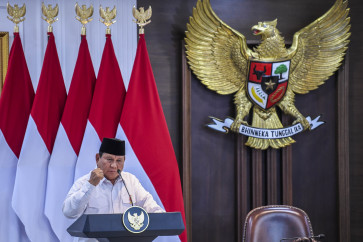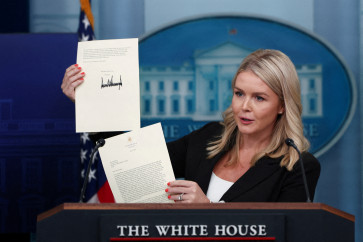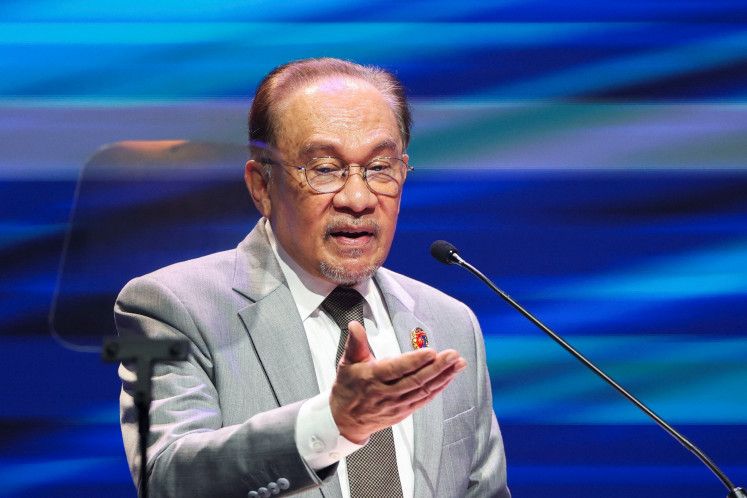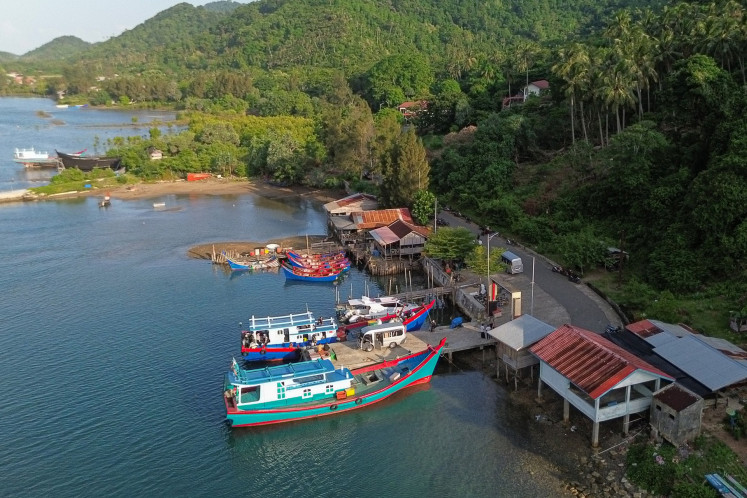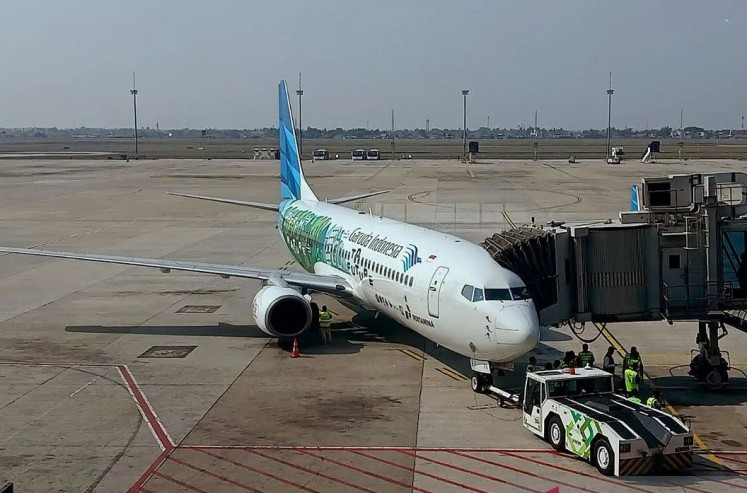Popular Reads
Top Results
Can't find what you're looking for?
View all search resultsPopular Reads
Top Results
Can't find what you're looking for?
View all search resultsPeople still reluctant to use public transportation: BPTJ
Efforts by both the city administration and the central government to alleviate chronic traffic congestion in Jakarta by improving public transportation are blunted by public inertia, as many commuters apparently stick with their old habits of using private vehicles
Change text size
Gift Premium Articles
to Anyone
Efforts by both the city administration and the central government to alleviate chronic traffic congestion in Jakarta by improving public transportation are blunted by public inertia, as many commuters apparently stick with their old habits of using private vehicles.
Greater Jakarta Transportation Body (BPTJ) head Bambang Prihartono said people were reluctant to take the bus or train for their daily commute.
He cited the odd-even license plate traffic policy that restricts access to certain thoroughfares of the capital depending on a car’s license plate number and the date had not really encouraged residents to turn to public transportation.
“Based on our observation, many people still opt to use motorcycles instead of switching to buses or trains and people still use cars but find alternative routes. That’s not what we want,” Bambang said in a discussion on Thursday.
Initially applied to a number of major roads, such as Jl. Sudirman, Jl. MH Thamrin, Jl. Panglima Polim, Jl. HR Rasuna Said and Jl. Gatot Subroto, the policy has since been expanded to several toll roads, namely Jakarta-Cikampek, Jakarta-Tangerang and Jagorawi in a bid to discourage car use.
He admitted that the odd-even traffic policy did have some effect though.
On the Jakarta-Cikampek toll road that connects Bekasi and Jakarta, the traffic volume has decreased by 35 percent. The number of private vehicles entering the toll road through the West Bekasi gate also decreased by 30 percent, increasing the traffic speed by 40 percent.
But it will not be sustainable, Bambang said.
“One day, the policy will no longer be effective, because people will find ways to keep using their cars and motorcycles. Hence, the government should accelerate the process of implementing ERP [electronic road pricing],” he said, referring to electronic road pricing.
He went to say that the BPTJ was responsible for the road payment scheme on national roads to Jakarta satellite cities, such as Jl. Margonda in Depok, Kalimalang in Bekasi, West Java and Tangerang in Banten next year.
Under the ERP scheme, drivers of private vehicles from those cities heading to Jakarta will be charged.
The BPTJ is currently conducting studies on the plan.
Bambang also urged the Jakarta administration to speed up the implementation of the ERP scheme, which has been put on hold many times following a failed tender.
In the future, Bambang said, public transportation should rely heavily on rail-based transportation.
That is why the government is pushing for the construction of the Greater Jakarta LRT (LRT Jabodebek) and the second phase of the MRT Jakarta.
Progress on LRT Jabodebek has reached 67 percent of completion, with the tracks extended to Kuningan in South Jakarta on Monday.
The network will initially include 82.9 kilometers of tracks of three routes connecting to Cawang, namely Cawang-Dukuh Atas, Cawang-East Bekasi and Cawang-Cibubur.
LRT Jabodebek trains will include six cars to accommodate up to 1300 passengers. The service is expected to start in 2021.
City-owned MRT Jakarta, meanwhile, served around 97,800 passengers a day in October with a total of 8,307 trips between the Hotel Indonesia traffic circle in Central Jakarta and Lebak Bulus in South Jakarta.
The company kicked off work on the second phase in March, with actual construction to start next year to add 8.3 km of track from Hotel Indonesia to Kota in West Jakarta.
Adding to the rail-based services, Darmaningtyas from the Institute of Transportation Studies (Instran) said the city had also added alternatives in improving angkot (public minivan) services through the JakLingko program.
Angkot are expected to transport commuters on the first and last miles of their trips.
“One day, when all angkot have joined the JakLingko program, the city can make adjustments with the routes so that there will be no more angkot on corridors served by [Transjakarta] buses or trains,” he told The Jakarta Post.
Former National Development Planning minister and public policy observer Andrinof Chaniago said changing people’s behavior to get them to use public transportation was never easy.
He noted that 31 million people living in Greater Jakarta made 88 million trips every single day. That number had more than doubled in only four years from 40 million trips in 2014.
“I think what we are developing today will serve only a small portion of the 88 million trips. We can’t deny that most of the trips are still done with private vehicles,” he said.
In the discussion that also talked about transportation system planning for the new capital in East Kalimantan, Andrinof called on the government to learn from urban problems in big cities like Jakarta and its satellite cities.
Echoing Andrinof, Djoko Setijowarno from the Indonesian Transportation Society (MTI) said the new capital city should establish a mass transportation system right from the start.
“The government should create a city where the people rely on public transportation instead of private vehicles,” he said.
“It can start with providing a bus service. Later on, when the number of daily commuters reaches a certain level, the government can start building rail-based transportation,” he added.


